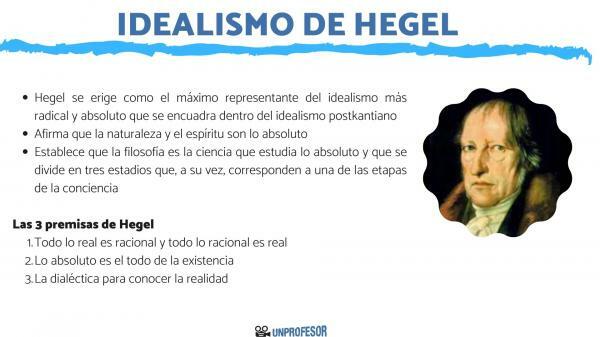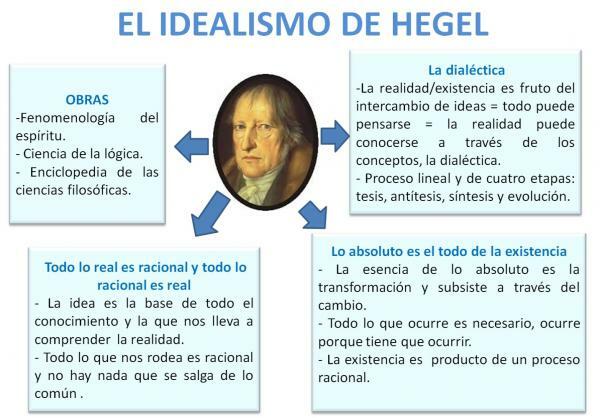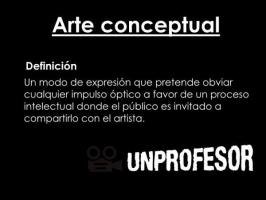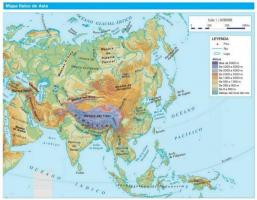Discover what HEGEL IDEALISM is

Today's lesson is dedicated to Georg Wilhem Friederich Hegel (1770-1831), one of the most important philosophers in history and one of the greatest representatives of the philosophical idealism. Which states that ideas are more important than the rest of things, that they exist independently and that reality is a construct of the mind.
Hegel, with his absolute idealism, reflected in three of his works: Phenomenology of the spirit, Science of logic and Encyclopedia of philosophical sciences, marked the philosophy of the 19th century. Well, his idealism was the mainstream in Germany and Britain. If you want to know more about Hegel's idealism, keep reading because we explain it to you in today's article.
Index
- Brief biography of Hegel
- What is Hegel's idealism: definition
- How can you define the thought of Hegel's idealism?
Brief biography of Hegel.
Georg Wilhelm Friedrich Hegel was born in Stuttgart (Germany), on August 27, 1770, into a family
Protestant. What's more, his father always wanted his son to become a Protestant pastor, so he entered the theology department of the University of Tübingen (1778).Shortly after, in 1793, he became a tutor in Bern (Switzerland) and, two years later, after the death of his father, he left his teaching job and devoted himself to what he liked best, philosophy.. In fact, Hegel always showed interest in the works of Plato, Aristotle, Descartes,Kant, Spinoza and Rousseau.
In 1801 he entered the University of Jena and, from this moment, developed his philosophical work with the publication of his works: Phenomenology of the spirit (1806), Science of Logic (1812-1816), Philosophy of Fine Arts (1835-1838), Lessons from the history of philosophy (1833-1836), Lessons from the philosophy of religion (1832)…
In addition, he also worked as an editor at the newspaper Bamberger Zeitung (Bavaria) and, later, was director of a gymnasium in Nuremberg and professor at the University of Berlin. In 1831, he died of cholera.

Image: History and biographies
What is Hegel's idealism: definition.
In the history of philosophy, Hegel stands as the highest representative of the most radical and absolute idealism, which is framed within the post-Kantian idealism. This current is reflected in three of his works: Phenomenology of the spirit, Science of logic and Encyclopedia of philosophical sciences.
Likewise, we must bear in mind that Hegel's idealism revolves around three premises:
Everything real is rational and everything rational is real
For Hegel, the idea is defined as the basis of all knowledge and the one that leads us to understand reality (something intangible but rational). Thus, reality is the development of an idea and the idea is the development itself. Both, reality and idea, are needed and one cannot exist without the other.
Equally, everything around us is rational and there is nothing out of the ordinary (we are not going to see a dog fly because he is not rational) and, therefore, the rational is real and it is what helps us to differentiate the rational from the irrational (what can be taken as real, but is not).
The absolute is the whole of existence
The essence of the absolute is transformation and subsists through change. Which, originates through an orderly method in which chance has no place and everything that happens is necessary, it happens because it has to happen. Thus, for example, all historical events, including tragedies, have to occur and we must accept it.
In this sense, our own existence is also the product of a rational process: what has happened in our life is the result of what we have done and what has happened to us, therefore, we must accept it as is.
Finally, Hegel will also establish that nature and spirit are the consequence of the absolute and that they are in themselves the absolute.
The dialectic
As Hegel affirms, reality can be known through reason and existence is the result of the exchange of ideas = everything can be thought and, therefore, reality can be known through the concepts, the dialectic. Which is a linear process divided into four stages:
- The thesis. What exists, reality.
- The antithesis. What is opposed to the thesis and is defined as an oppositional dialogue (clash of ideas).
- Synthesis: It is the union of the opposite dialogue. In this sense, for Hegel reality is composed of thesis and the antithesis (they are needed to exist), it is a antagonistic reality.
- Evolution: Reality moves dialectically through thesis and antithesis.

Image: Slideplayer
How can you define the thought of Hegel's idealism?
Starting from the Hegelian premise that affirms that nature and spirit are the absolute, the philosopher establishes that philosophy is the science that studies the absolute and that it is divided into three stadiums which, in turn, correspond to one of the stages of consciousness:
- The logic: It is the idea itself / The subjective spirit (stage of consciousness).
- The philosophy of nature: The idea outside itself / The objective spirit (stage of consciousness).
- The philosophy of the spirit: Study the idea in itself and for itself / The absolute spirit (higher stage of consciousness).
In parallel, these three studies are studied and carried out through various disciplines:
- The subjective spirit: Psychology, Anthropology and Phenomenology.
- The objective spirit: Morality, law and the State.
- The absolute spirit: Art, religion and philosophy.

If you want to read more articles similar to What is Hegel's Idealism - Summary, we recommend that you enter our category of Philosophy.
Bibliography
Colomer, E., German thought from Kant to Heidegger. Vol. II. Idealism: Fichte, Schelling and Hegel. Herder. 2008.



